Vanessa Adams
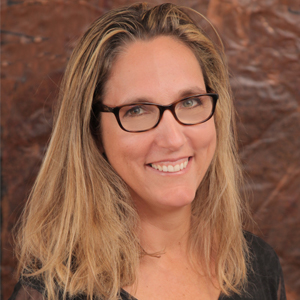
Vice President Strategic Partnerships at AGRA (Alliance for a Green Revolution in Africa), and Chief of Party of the Partnership for Inclusive Agricultural Innovation in Africa (PIATA)
Vanessa Adams, Vice President Strategic Partnerships at AGRA (Alliance for a Green Revolution in Africa), and Chief of Party of the Partnership for Inclusive Agricultural Innovation in Africa (PIATA) is a proven leader with strong private sector, investment facilitation and project management experience. PIATA is a 5-year $500M USD strategic partnership to improve the livelihoods of 30 million smallholder African farmers and agricultural actors in 11 priority countries including: Burkina Faso, Ethiopia, Ghana, Kenya, Malawi, Mali, Mozambique, Nigeria, Rwanda, Tanzania, and Uganda. AGRA is driving an inclusive agricultural transformation across value chains to leverage agricultural investments and building sustainable systems that will transition agriculture from subsistence to highly productive inclusive agriculture, increasing incomes of nearly 8 million smallholder households
Toyin Ajibade
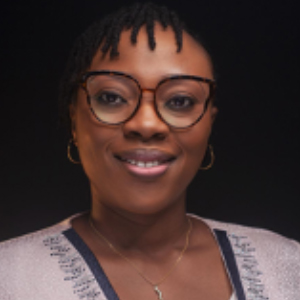
Lecturer and researcher in the University of Ilorin Nigeria
Toyin Ajibade, a lecturer and researcher in the University of Ilorin Nigeria, holds a Ph.D. in Agricultural Economics. She has about eight years cognate banking experience spanning over a few commercial banks in Nigeria before further venturing into the academia. An IITA research fellow, her doctoral research was on Price Discovery and Volatility of Selected Food Crop Markets in Nigeria. Her career goal is to be at the forefront of agricultural trade, markets and industrial organization agenda towards regional trade integration and agricultural value chain development in Africa. Toyin has been actively involved in: training of financial institutions on selected agricultural value chains and also financial literacy curriculum development for farmers under the Nigeria Competitiveness Project. She is a co-Principal Investigator on a Feed-The-Future Legume Systems Innovation Lab-funded project targeted at Promoting Trade Integration in Africa Regional Legume Markets.With an evolving agricultural revolution in view, Dr. Toyin’s recent drive is fueled by her passion to see agriculture in all its forms metamorphose to a state of pride for the nation and those who practice it. When not buried in teaching and research works, Toyin loves to explore the world, cook, and listen to good music.
Alima Bawah
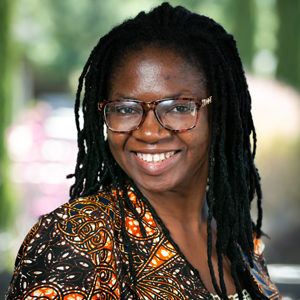
Co-founder and COO of Cowtribe Inc
Alima Bawah is the Co-founder and COO of Cowtribe Inc, A company with a mission of making life-saving animal vaccines and preventive veterinary care accessible and affordable to farmers at the very last mile throughout Africa, by building and deploying logistics infrastructure to enable a low-cost solution. Prior to Co-founding Cowtribe, she was a journalist who focused on documenting the lives of rural women and children and their struggles in Agriculture, health, and education. As a result of her experience in the field, she founded an NGO, KIC foundation which sort to restore the dignity of twins and their mothers by economically empowering them to leave the streets. Alima is an Obama Foundation African Leaders fellow and a 2018 Queen's Young Leader award recipient.
Katja Becker
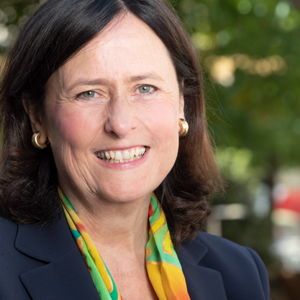
President of the Deutsche Forschungsgemeinschaft (DFG, German Research Foundation)
Katja Becker is the President of the Deutsche Forschungsgemeinschaft (DFG, German Research Foundation). She studied medicine at Heidelberg University, where she also obtained her doctoral degree and habilitation. After a position at the Center for Infectious Diseases, Würzburg University, she accepted a chair in Biochemistry and Molecular Biology at Giessen University. Education and research led her to Africa, Australia, Switzerland, the UK and the US. Her research interests focus on cellular redox metabolism as a drug target in malaria parasites and cancer cells. Until 2019 she was the coordinator of the DFG Priority Programme 1710, which examines the thiol-based regulation of enzymes, and spokesperson of the LOEWE Center DRUID, which aims to develop novel drugs, vaccines and diagnostics against neglected tropical diseases. Katja Becker is active in multiple scientific advisory boards and served as vice president at Giessen University. From 2014 to 2019, she was vice president of the DFG. Her work has been honoured with the Ludolf Krehl Prize, the Carus Medal, the Rudolf Leuckart Medal and membership in the German National Academy of Sciences Leopoldina.
Salome A. Bukachi
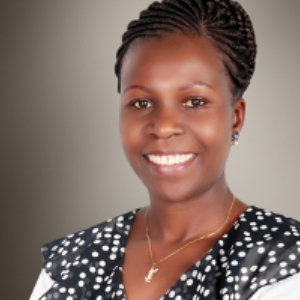
Social-medical Anthropologist, Institute of Anthropology, Gender and African Studies, University of Nairobi, Kenya
Prof. Salome A. Bukachi is a social/medical/ anthropologist with over 19 years progressive experience working on infectious diseases with a focus on community knowledge and practices in relation to livestock and zoonotic diseases, including the gender issues therein , health systems and the socio-economic and cultural/behavioural aspects of infectious diseases and development. She works with various stakeholders both local and international in undertaking research and development on anthropological issues. Her main disease focus has been on infectious zoonotic diseases – African trypanosomiasis, Rift Valley fever among others.
Dominique Charron
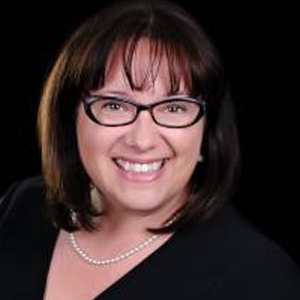
Vice-President, Programs and Partnerships International Development Research Centre (IDRC) Ottawa, ON, Canada
Dominique Charron is IDRC’s Vice-President, Programs and Partnerships. Prior to being Vice-President, Dominique was the Director of IDRC’s Agriculture and Environment program area. She supervised research focused on increasing agricultural productivity and food security, reducing vulnerability to climate change, and protecting the public against infectious diseases and non-communicable diseases. Dominique joined the Centre in 2006 as head of the Ecosystems and Human Health program. Previously, she managed research programs at the Public Health Agency of Canada. Dominique Charron holds a PhD in epidemiology and a Doctor of Veterinary Medicine from the University of Guelph.
Madalitso Magombo Chatsika

Lecturer in Fish Biology and Fisheries Management at the Lilongwe University of Agriculture and Natural Resources
Mrs. Madalitso Magombo Chatsika is a lecturer in Fish Biology and Fisheries Management at the Lilongwe University of Agriculture and Natural Resources, at the Department of Aquaculture and Fisheries Science where she is involved in teaching, research, consultancy and outreach. She is currently in her final year in her Ph.D. in fisheries and biology management at Michigan State University, Department of Fisheries and Wildlife. As part of her PhD research, Madalitso studies the “Effects of climate change on fisheries of the Southeast arm of Lake Malawi" where she incorporated environmental variables like temperature and rainfall into the convectional Surplus Production Models to assess the impact of climate change on fisheries resources.
Annapia Debarry
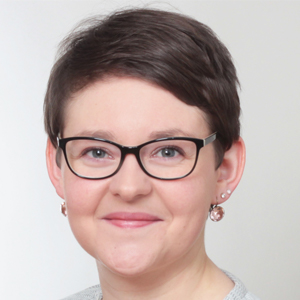
Research fellow in the Department of Development Geography at the University of Bonn
Annapia Debarry holds a Bachelor of Arts degree in Cultural Geography from the University of Erlangen, Germany, and a Master of Science degree in Geography from the University of Bonn, Germany. She is currently a research fellow in the Department of Development Geography at the University of Bonn, where her teaching focuses on postcolonial gender geography and feminist political ecology. In her dissertation project she is exploring gendered inequalities and (dis)empowerment processes in the context of agricultural transformations in Northern Ethiopia through an intersectional lens. Previously, she worked as a junior researcher at ZEF (Center for Development Research) for the NutriHAF-Africa project, where her research focused on the role of gender in nutrition-sensitive agriculture in southwestern Ethiopia. She has work and research experience in Ethiopia, Tanzania, Myanmar and Thailand.
Rocio A Diaz-Chavez
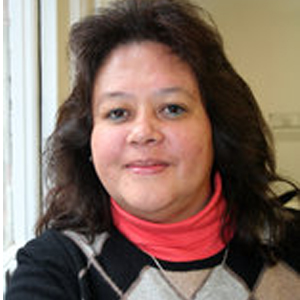
Deputy Director for Research at the Stockholm Environment Institute Africa Centre
Dr Diaz-Chavez has extensive work and academic experience in sustainability assessment and environmental management tools and methodologies. Her research area focuses on sustainability assessment and deployment of bioeconomy, land use and natural resources and the synergies with energy, sustainability and other SDGs. She has participated and coordinated different EU funded projects and worked in different consultancy work for the European Commission as well as in other regions in Europe, Africa, Asia and Latin America. She formed part of the FAO and UK’s expert group for indicators development for the Global Bioenergy Partnership. She acted as Chair of the Social Group while developing the Bioenergy Standard for the International Organisation for Standardisation (ISO). She has been the co-chair of the International Energy Agency for the UK Task 40 (Biomass trading). She is a Senior Research Fellow at the Centre for Environmental Policy of Imperial College London. She received the SCOPE 2010 Young Scientist Award in Environmental Management for her work on indicators and standards.
Gundula Fischer
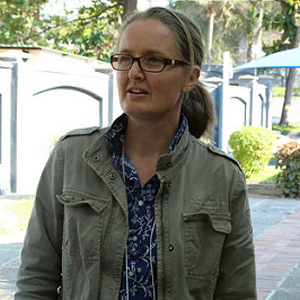
Social Scientist and Gender Expert at International Institute of Tropical Agriculture (IITA)
Gundula Fischer is a sociologist and social anthropologist with a PhD from Bayreuth University, Germany. She works with the International Institute of Tropical Agriculture (IITA) based in Arusha, Tanzania. Her research focuses on gender and sustainable agricultural intensification, agricultural mechanization and value chains. She has been engaged in studies in Ghana, Mali, Tanzania and Malawi.
Alessandra Galiè
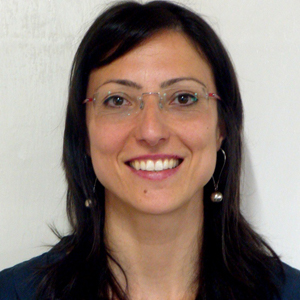
Senior Gender Scientist at the International Livestock Research Institute (ILRI) Kenya
Alessandra Galiè works as a Senior Gender Scientist at the International Livestock Research Institute (ILRI) based in Kenya. Her research integrates gender analysis in livestock value chains with a particular focus on animal genetics and women’s empowerment. Before joining ILRI she worked at the International Centre for Agricultural Research in the Dry Areas (ICARDA) undertaking gender research in empowerment, seed governance and participatory plant breeding. Alessandra holds a PhD from Wageningen University, Netherlands, and an MA in Social Anthropology of Development from the School of Oriental and African Studies, University of London.
Katrin Hagemann
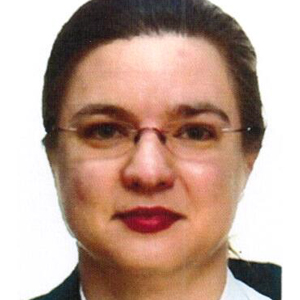
Deputy Head of the Delegation of the European Union to Kenya
Katrin Hagemann was appointed as the Deputy Head of the Delegation of the European Union to Kenya in 2019. A German National, she joined the European External Action Service at its inception in 2011. From 2015-2019, she served as the head of the Political Section of the European Union Delegation to Botswana and SADC. She holds a degree in Astronomy and Physics (Wellesley College), a Master's Degree in Astronomy (Cornell University) and a second Master of Advanced International Studies (University of Vienna/Diplomatic Academy Vienna). She began her career at the German Federal Foreign Office before joining the European Union Council Secretariat in 2006.
Lydie Hakizimana
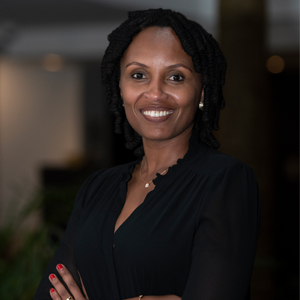
CEO of the African Institute for Mathematical Sciences (AIMS)
Lydie earned a Master’s in Public Administration (MPA) from the Harvard Kennedy School of Government, where she worked on a project to scale up Happy Hearts, her chain of preschools, by providing quality early education to hundreds of children between the ages of 18 months and five years old in Rwanda. Now CEO of the African Institute for Mathematical Sciences (AIMS), she is also the co-founder of Drakkar Ltd, a publishing house that serves more than 3,000 schools in Rwanda. In 2018, Lydie was appointed as a board member of the African Leadership University (ALU), which was named one of the most innovative companies in the world (#1 in Africa) by the influential magazine Fast Company. She previously worked for OTF Group, a Boston based consulting firm which advised the governments of Rwanda and Gabon in Information Communication Technologies, the Hides and Skin, and Timber industries respectively. A certified Montessori teacher from the North American Montessori Center (NAMC) in Canada, Lydie Hakizimana is a recipient of numerous awards, including the Mandela Washington Fellowship in 2016 and the Archbishop Desmond Tutu Fellowship in 2013.
Adanna Henri-Ukoha
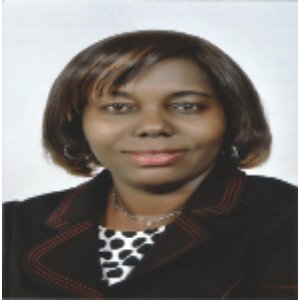
Senior Lecturer at the Department of Agricultural Economics & Extension, University of Port Harcourt. Choba, Nigeria
Dr. Mrs. Adanna Henri-Ukoha is a Senior Lecturer at the Department of Agricultural Economics & Extension, University of Port Harcourt. Choba, Nigeria.She has made significant contributions in the area of mentoring young academics. She is a reviewer as well as editor in several peer reviewed journals. She holds several academic and administrative positions which include acting on behalf of the Head of Department of Agricultural Economics and Extension, Secretary to the Faculty of Agriculture Research and Training Committee, Member of Faculty Farm Management committee, Chairperson of Departmental Farm Management committee, Chairperson of Departmental Research Group, Coordinator of Undergraduate research projects, Member of Departmental Accreditation Committee, Member of Information Communication and Visibility Committee and Member, Departmental Ad-hoc Examination Committee in University of Port Harcourt among others.
Ikmat Olanrewaju Junaid
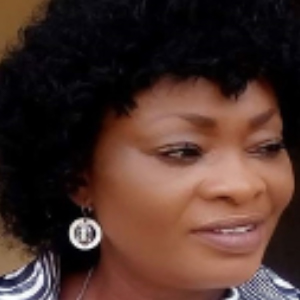
Senior Lecturer, Institute of Education, University of Ibadan, Nigeria
Ikmat Olanrewaju Junaid started her teaching professional career with the Oyo State Teaching Service Commission from 1991 to 2007, before transferring her service to the Institute of Education, University of Ibadan in August, 2007, where she has since been a core academic staff. She has been involved in teaching and training of research students at the postgraduate level in the Institute of Education, University of Ibadan. She is also the human rights and gender focal person for the Pan African University’s Life and Earth Science Institute. She is a training consultant on research, monitoring and evaluation of school effectiveness, open/distance education and pubic examining bodies in Nigeria. She belongs to several learned societies among which are: Organisation for Women in Science for the Developing World, Association of Educational Research and Evaluators of Nigeria, Higher Educational Researchers and policy Network.
Phyllis Kalele
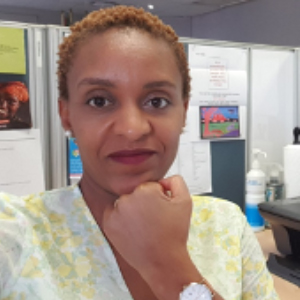
Coordinator-Africa focal point for Gender in Science Innovation Technology and Engineering (GenderInSITE),
Ms. Phyllis Kalele is the Coordinator-Africa focal point for Gender in Science Innovation Technology and Engineering (GenderInSITE), an international initiative that promotes the role of women in science, innovation, technology and engineering. She also heads the African Collaboration sub-programme at the Academy of Science of South Africa (ASSAf), a public entity under the South African national Department of Science and Innovtion. Phyllis holds a BSc. degree in Botany and Zoology, MSc. degree in Environmental Sciences and is currently finalising a PhD. in Science and Technology Studies, at Stellenbosch University, South Africa.
Annie Kamaka Kyakimwa
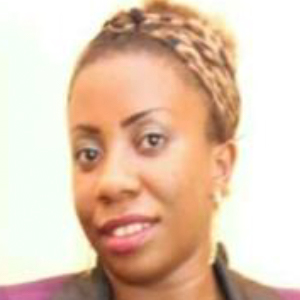
Co-founder of Annahgreen RDC.Comp
Training and support center for vulnerable women and girls. Agricultural product production and processing center. Agricultural cooperative.
Juliet Kariuki
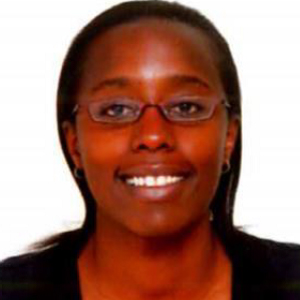
Research Scientist, University of Hohenheim (Germany)
Juliet Kariuki holds a PhD in Agricultural Sciences from the University of Hohenheim where she is currently a scientist. Her work has a strong gender component and focusses on the social and institutional dimensions of natural resource management largely in pastoral areas of eastern Africa.
Jules Kazungu
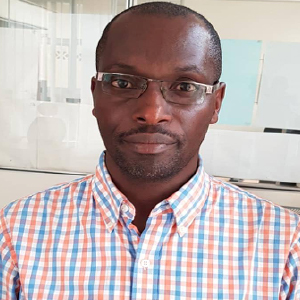
Managing Director of Regional Research Centre for Integrated Development (RCID) in Rwanda
I have more than 15 years working experience in forest management and training, community forestry, environmental and natural resources management and research in Rwanda. I have an Msc in Agroforestry and Soil Management for fall 2012 from the University of Rwanda. I have been involved with multi-national projects n the areas of forestry, agroforestry and agricultural sector. This expertise has been developed through my senior roles on projects both for government institutions public, private and NGOs. I have involved in the national policy, strategies and field–level technical assistance programs on gender, nutrition, environment, and climate change adaptation and mitigation and renewable energy development. Most recently I have been involved as Independent Consultant for the Technical Assistance Facility (Agri-TAF) program. A program funded by DFID running over four years from January 2016 and supported the Rwandan Ministry of Agriculture and Animal Resources (MINAGRI). The purpose of Agri-TAF was to provide additional expertise, knowledge and evidence for better policies, plans and programmes in the areas of gender, nutrition, environment, and climate change on the ground.
James Kigera

Editor in Chief of the Annals of African Surgery and the Associate Editor of the East African Orthopaedic Journal
Dr. Kigera is an orthopaedic surgeon who specializes in joint replacement surgery. He is also a lecturer at the University of Nairobi's School of Medicine. He is currently the President of the Kenya Orthopaedic Association, the national body for orthopaedic surgeons. He serves as the Editor in Chief of the Annals of African Surgery and the Associate Editor of the East African Orthopaedic Journal.
Linet Kwamboka
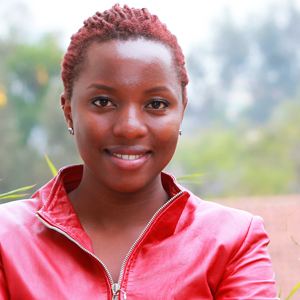
Founder and CEO of DataScience LTD
Linet Kwamboka is the Founder and CEO of DataScience LTD – a software engineering company that is focused on building information systems that generate and use data to discover intelligent insights about people, products and services. She was a Mozilla fellow (2017/2018) focusing on data protection and Privacy policies in the East African Region. She has been the Kenya Open Data Initiative Project Coordinator for the Government of Kenya at the Kenya ICT Authority where she also led the Open Government Partnership for the Government of Kenya and has also helped the Government of Somalia build their open data project from concept to portal and support under the Open Government Initiative.
She has worked at the World Bank (World Bank Spot Award recipient) as a GIS and Technology Consultant and the UNDP in the Strengthening Electoral Processes in Kenya. She was a Software Engineering Fellow at Carnegie Mellon University, Pittsburgh and her background is in computer science, data analysis and Geographical Information Systems. She was recently recognized as one of the World’s 100 Most Influential People in Digital Government, a recognized unsung hero by the American Embassy in Kenya in her efforts to encourage more women into technology and computing, has been a finalist in the Bloomberg award of global open data champions and is a member of the Open Data Institute Global Open Data Leaders’ Network.
Agnes Leina
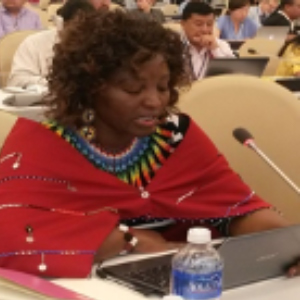
Founder and Executive Director of Il’laramatak Community Concerns
Agnes Leina comes from Northern part of Kenya, Samburu County, inhabited mainly by the Samburu community, a sub-set of the Maasai peoples of Kenya, who are mainly pastoralists clinging strongly to their traditional way of life from of old. She is married with two children. She holds a Master’s Degree in Rural Sociology and Community Development, from the University of Nairobi, Kenya, and a Bachelor’s degree in Communications and Community Development from Daystar University-Kenya. Agnes as well holds a Post-Graduate Certificate in International Development from the University of Birmingham - United Kingdom. Agnes is the Founder and Executive Director of Il’laramatak Community Concerns (ICC) whose name denotes ‘care-givers’, or pastoralist. ICC is an Indigenous People’s Organization whose main goal is to restore dignity among Indigenous people, with special emphasis on Girls and Women. ICC envisions a society of Indigenous Peoples of Kenya that is free from all forms of discrimination.
Lailà Lokosang
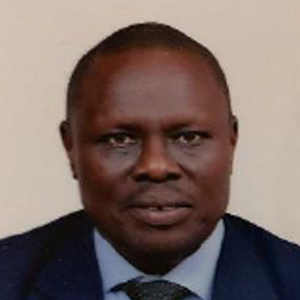
Senior CAADP Advisor (Food and Nutrition Security)
Lailà Lokosang is a national of South Sudan and is currently serving as Senior CAADP Advisor (Food and Nutrition Security). He has served in different professional capacities at both national and international levels, with a career spanning over three decades. A statistician, monitoring and evaluation and management information systems expert, Laila specializes in food security, nutrition and livelihoods risk analysis and surveillance. He holds a Ph.D in Statistics, a Master of Science in Food Security (cum laude), and a Bachelor Science in Statistics and Demography
Margaret Macherera
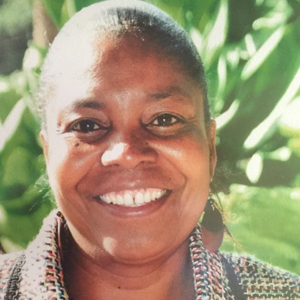
Senior lecturer at Lupane state University, Zimbabwe
Dr Margaret Macherera is a Senior lecturer at Lupane state University, Zimbabwe. She holds a PhD in Public health from the University of Kwazulu Natal, Republic of South Africa. Margaret is an Environmental Health practitioner by profession and worked with communities in the rural areas for 13 years before joining the academia. He has 15 years experience as a lecturer and a researcher. She headed a department as chairperson for 2 consecutive terms. Margaret is the founding secretary for the NUST Academic Women Researchers. Her research interests are mainly on the integration of indigenous knowledge and modern science. Margaret is also a member of the Gender portfolio in the Africa Academy for Environmental Health.
Nancy Madigu
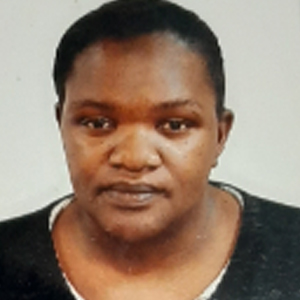
Health Research Scientist, Nestle, Kenya
Nancy Madigu, PhD, is a Nutrition, Health and Wellness specialist at Nestle. Her expertise in Community Nutrition is exemplified by her most recent publication in the UN Environment Programme report highlighting the role of private sector in sustainable food systems: Case study of the Farmer Family Nutrition in Kenya. Key findings of the project revealed men were more inclined towards increasing household incomes (food security) while women were more drawn to the nutrition well-being of their families. By training both men and women (couples), desirable outcomes were noted. Her work aroused keen interest from the Ministry of Agriculture (K) that led to the process of using the acquired evidence-based research to roll out a consortium of Public-Private Stakeholder Engagement that encourages the use of the study results in improving nutrition outcomes in community-prioritized interventions.
Olfa Mahjoub
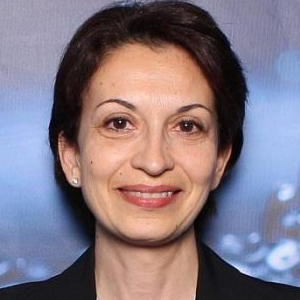
Associate Professor and Head of the Chemistry Laboratory for Water-Soil-Sludge at the National Research Institute for Rural Engineering, Water, and Forestry (INRGREF)
Dr. Olfa Mahjoub (female), Associate Professor and Head of the Chemistry Laboratory for Water-Soil-Sludge at the National Research Institute for Rural Engineering, Water, and Forestry (INRGREF) with +19 years’ experience in wastewater management and reuse and water quality, in addition to cross-cutting related topics e.g. social acceptability, gender’s role, environment. Currently, Director of the Agricultural Research Planning, Monitoring, and Evaluation at the Institution of Agricultural Higher Education and Research (IRESA). She is principle investigator and partner of several international research projects funded by USAID, DAAD, USDA, EU, UNESCO-Sida, etc.) and currently the scientific coordinator of the “Water in the World We Want” project in Tunisia. She is author and co-author of more than 50 peer-reviewed international papers and hundreds of international oral and poster communications. She is member of several organization and networks (OWSD, IWA, AWARENET, AETDEW, ArabWAYS, etc.). She is Agricultural Engineer by training and holds a PhD in Water Sciences, UM1, Montpellier, France.
Yamikani Makwinja
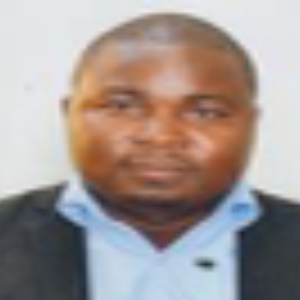
Assistant Forestry Zone Manager,Department of Forestry,Ministry of Natural Resources, Energy and Mining
Yamani is a Environmental and Forestry specialist with over 10 years’ experience of working in different development sectors and projects in Malawi. He has worked with government of Malawi (Department of Forestry), Water for People International and Voluntary Overseas Organization (VSO) in different planning and Development portfolios. Among the positions he has worked include Zone Forestry Planning Officer, District Council Director of Planning and Development, Environmental District Officer and District Forestry officer. He also teaches Forestry Economics at Malawi College of Forestry and Wildlife.Yamikani is also an adjunct lecturer of Environmental studies at The Catholic University of Malawi
Sara Mbago-Bhunu
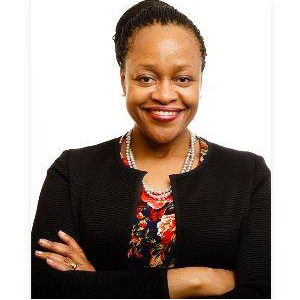
Director of IFAD’s East and Southern Africa Division
Sara Mbago-Bhunu is the Director of IFAD’s East and Southern Africa Division. Mbago-Bhunu brings to IFAD rich work experience spanning more than 20 years in the agriculture sector across Central, East and Southern Africa. She has worked on agriculture policy and sector reviews, value chain development, access to agricultural finance, social enterprise models and the promotion of small and medium-sized enterprises in peri-urban and rural areas. She has also led and managed teams in other development organizations in the design of development projects and capacity-building programmes. Prior to joining IFAD, Mbago-Bhunu worked at the World Bank as a Senior Agricultural Economist for the Central African Republic, the Democratic Republic of the Congo and the Republic of Congo, based in Kinshasa.
Husna Abdalla Mbarak
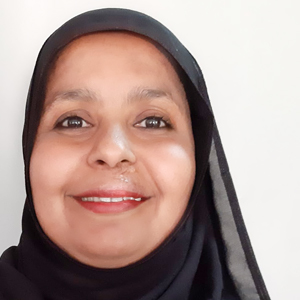
Lead in Governance of Natural resource Sub programme at Food and Agriculture Organization of the United Nations Kenya Representation
Husna Abdalla Mbarak works in Food and Agriculture Organization of the United Nations Kenya Representation as the Lead in Governance of Natural resource Sub programme, Land Programme Manager of the Land Governance Programme and the Gender Focal Point. The main focus of her work is around Land Administration, Land Use planning, policy and legal framework, Gender and research around Environment and natural resources. She is a trained Legal, Gender and Development, Natural Resource and Land Governance Tenure expert. Currently pursuing her PhD in Environmental Law” focusing on Gender, Land and Conflict.
Winnie Mburu
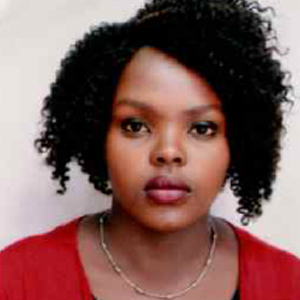
Project Assistant, Jaramogi Oginga Odinga University of Science and Technology, Kenya
Ms Winnie Mburu is a project assistant at Gaea Foods Limited, whereby Winnie Implements business operations and establishes policies that promote company vision in the many different projects in the company including black soldier fly farming, a piggery, potato farming farm and a potato processing factory amongst others. She is a financial economist and a chartered Accountant by profession.
Annet Abenakyo Mulema
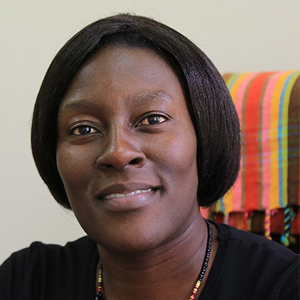
Science Officer - Gender and Social Inclusion CGIAR Research Program on Climate Change, Agriculture and Food Security (CCAFS)
Dr. Annet Abenakyo Mulema works for the CGIAR Research Program on Climate Change, Agriculture and Food Security (CCAFS) as a Science Officer - Gender and Social Inclusion. She has also worked as a Social Scientist-Gender at the International Livestock Research Institute (ILRI), and Research Associate at the International Center for Tropical Agriculture. She has over 10 years of gender research experience and contributed to numerous publications. Her research focuses on gender and value chain analysis, women’s economic empowerment, gender capacity development, climate-smart agriculture, gender and climate policy, and developing participatory approaches for catalyzing rural innovation processes. Her most recent publications have focused on mapping women’s empowerment through agricultural interventions and transforming gender relations and practices that expose livestock keepers to zoonotic diseases. Annet holds a Ph.D. in Sociology and Sustainable Agriculture from Iowa State University. She is an Alumni of the AWARD Fellowship, a prestigious fellowship for impressive, talented, and motivated female agricultural researchers.
Caroline Mulinya
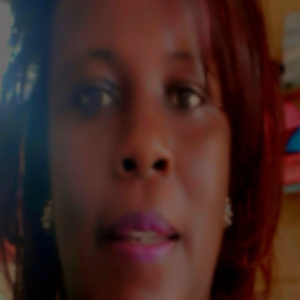
Senior Lecturer of Geography and Director in charge of international relations and Academic linkages at Kaimosi Friends University
Caroline Mulinya holds a PhD in Geography( Climatology and Climate Change from Jaramogi Oginga Odinga University of Science and Technology, a Masters of Arts in Geography in Climatology from the University of Nairobi(2006) and a Bachelor of Arts in Education( Geography) from Moi University (1999). Currently, a Senior Lecturer of Geography and Director in charge of international relations and Academic linkages at Kaimosi Friends University. Previously, Head of Geography Department and Environmental Sciences at Masinde Muliro University of Science and Technology in Kenya. Previously worked as Research Scientist at The Kenya Industrial Research And Development Institute, Research Assistant at IUCN on Lembus Forest in Eldama Ravine County on issues of socio- economic and indigenous knowledge of the forest .Was honoured to get fellowship from GEF for her Masters studies where she worked on the Conservation of Mount Marsabit in Marsabit County .Has received 2 fellowships from The Netherlands Fellowship Programme(NFP) to train on climate change and forest related issues
Winfred Mulwa
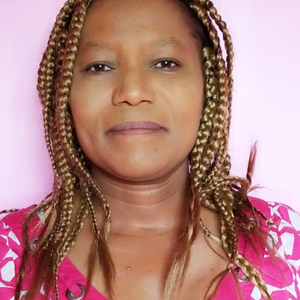
Lecturer department of Physics, Egerton University, Kenya
I am a lecturer department of Physics, Egerton University, Kenya. Specialist in computational physics, having an advanced knowledge in High Performance Computing. A facilitator as well as a website manager in the African School on Electronic Structure Methods and Applications (ASESMA). ASESMA takes place after every two years in Africa and it is organized by the International Centre for Theoretical Physics (ICTP) – ITALY. My research is in renewable energy, which fall under material science. My present research is on magnetic refrigeration with respect to gender lens. My Current work aims at introducing magnetic refrigeration in North Eastern Kenya where women are the majority in handling camel milk.
Catherine Mungai
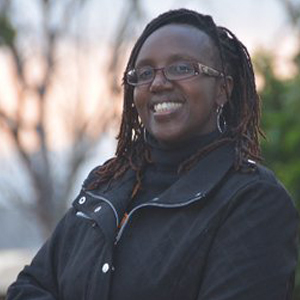
Partnerships and Policy Engagement Specialist for the CGIAR Research Program on Climate Change, Agriculture and Food Security (CCAFS) in East Africa
Catherine Mungai is the Partnerships and Policy Engagement Specialist for the CGIAR Research Program on Climate Change, Agriculture and Food Security (CCAFS) in East Africa based at the International Livestock Research Institute (ILRI) in Nairobi, Kenya. Her work focuses on expanding learning partnerships and supporting science-policy engagement processes in CCAFS focus countries in East Africa and also at the global level on integrating gender, climate change and agriculture policies. Catherine is a member of the African Group of Negotiators Expert Support (AGNES) gender group. She is also in the Technical Working Group supporting Gender Mainstreaming of Kenya’s Nationally Determined Contributions under the Climate Change Directorate at the Ministry of Environment and Forestry. Catherine also offers technical support on the knowledge sharing platform known as the Climate and Agriculture Network for Africa (CANA) which seeks to promote dialogue between youth, policy makers and scientists on food security, agriculture and climate change matters.
Beatrice Muriithi
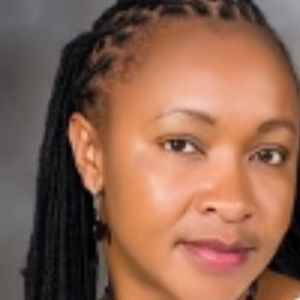
Agricultural Economist at International Centre of Insect and Pest Ecology (ICIPE)
Beatrice W. Muriithi is a Agricultural Economist at International Centre of Insect and Pest Ecology (ICIPE), where she works with the Social Science and Impact Assessment Unit. She has over ten years of experience in agricultural development in Eat Africa. Her research interests cover a wide range quantitative and qualitative social science aspects including adoption and impact of agricultural technologies on livelihood outcomes, resource management research, gender analysis, poverty dynamics, institutions and policies. Through a gender lens, her current research focuses adoption and impact of integrated pest management(IPM), and livestock health management tools including beekeeping and related ecosystem services. She has authored and co-authored several journal articles and book chapters in her wide research domain. She holds PhD in Development Economics from the Center for Development Research (ZEF), University of Bonn, Germany and BSc and MSc in Agricultural Economics, both from Egerton University, Kenya.
Audrey Namdiero-Walsh
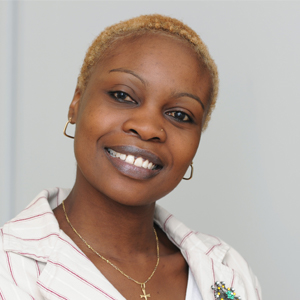
European Operations Director for AIMS NEI
Audrey Namdiero-Walsh is the European Operations Director for AIMS NEI where she oversees the day-to-day operations of the AIMS NEI Germany and AIMS NEI UK offices (two of the Advancement Chapters in the AIMS global network). She is also the Acting Director for Gender and Inclusion at AIMS NEI where she engages the AIMS network in a transformational process to effectively mainstream gender equality throughout the organization and its programs. With over 10 years of project management experience in the international development sector, Audrey contributes significantly to AIMS NEI’s grants management, stakeholder relationship management, donor engagement, and gender equality efforts. She holds a Bachelor’s degree in Psychology and a Master’s degree in Public Policy.
Grace Nanyonjo
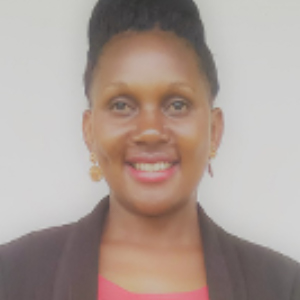
Gender specialist with the National Agricultural Research Organization (NARO)
Ms. Grace Nanyonjo holds a Master’s Degree in Gender and a Bachelors of Science in Horticulture of Makerere University. She possesses a certificate in Implementation, Analysis and Interpretation of Project-Level Women Empowerment Agricultural Index (PRO-WEAI) from IFPRI. Grace is a fellow under the Gender-responsive Researchers Equipped for Agricultural Transformation (GREAT) project implemented by Cornel and Makerere Universities. Currently, she is working with the National Agricultural Research Organization (NARO) as a Gender specialist. Presently, she is engaged with the “Precooked bean” project under Cultivate Africa’s future phase 2 funded by IDRC aimed at scaling up supply of precooked beans for food and nutrition security by leveraging on a public-private partnership with digital payment as a pilot model. During phase 1 of the project, Grace worked diligently with the project implementing team to increase women’s income and participation in marketing, though control over the latter still constrains efforts to women empowerment. She also provides support to the Nutrifish project funded by IDRC on implementation of the PRO-WEAI qualitative studies. Grace is dedicated and passionate about improving the livelihoods of vulnerable communities precisely rural women and youth who are less privileged. Ultimately, she is devoted to attaining equality and transforming agricultural systems through financial inclusive interventions.
Dorothy Ngila
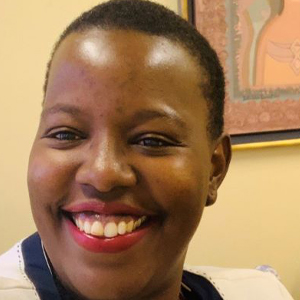
Project specialist in the Strategy, Planning and Partnerships business unit at South Africa’s National Research Foundation (NRF)
Dorothy Ngila advances her career at South Africa’s National Research Foundation (NRF) as a project specialist in the Strategy, Planning and Partnerships business unit. Her core responsibility is to coordinate the NRF’s contribution to the multi-stakeholder and multi-agency capacity strengthening programme, the Science Granting Councils Initiative (SGCI) in sub-Saharan Africa, which serves 15 public science granting councils in East, West and Southern Africa. She is chair of the Organization for Women in Science for the Developing World (OWSD) South African National Chapter; and serves on the Global Research Council (GRC) Gender Working Group, both advancing conversations and actions promoting the equality and status of women in reseach. Prior to joining the NRF, she served in various capacities within the international partnerships programme of the Academy of Science of South Africa (ASSAf). Ms Ngila possesses a Masters degree in Geography and Environmental Management from the University of KwaZulu-Natal (UKZN), South Africa and a Bachelor of Arts (Public Administration and Environmental Sciences) from the University of Botswana. She is currently studying towards a PhD in Science and Technology Studies at Stellenbosch University, South Africa.
Jemimah Njuki
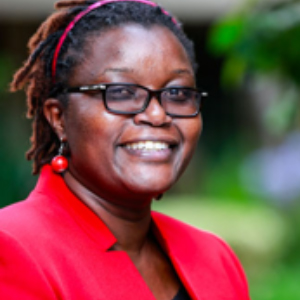
Director for Africa at the International Food Policy Research Institute (IFPRI).
Dr. Jemimah Njuki is Director for Africa at the International Food Policy Research Institute (IFPRI). She has more than 20 years of experience in the agriculture sector in Africa and Asia, working on gender equality and the empowerment of women. Her extensive resume includes positions with the International Development Research Centre (IDRC), CARE USA, and the International Livestock Research Institute (ILRI). She has served as Coordinator of the Growth and Economic Opportunities Program (2020) and Senior Program Specialist in the Agriculture and Food Security Program at IDRC (2013–2019); Program Leader for the Women in Agriculture Program at CARE USA (2012–2013); and Program Leader for the Poverty, Gender and Impact Program (2009-2012) and Senior Scientist at ILRI (2003–2009). She has worked widely in Africa, including in Malawi (2004–2007), Zimbabwe (2007–2009), and Tanzania (2012–2013), and has conducted field research in many other countries. Dr. Njuki has published extensively in gender and agriculture journals on topics such as gender and technology, impacts of women’s time in agriculture on caregiving practices and nutrition, indicators for women’s empowerment, trade-offs between market development and women’s income control, approaches for linking smallholder women farmers to markets, and gender transformative food systems. Her current research focuses on how to make food systems more equitable and gender transformative.
Marian Nkansah
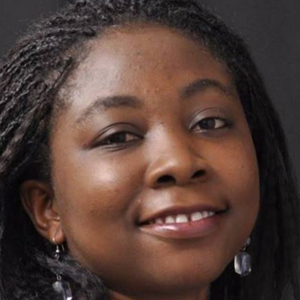
Senior Lecturer, Department of Chemistry at the Kwame Nkrumah University of Science and Technology, Kumasi-Ghana
Dr. Nkansah obtained her PhD in 2012 from the University of Bergen (Norway) and returned to the Department of Chemistry at the Kwame Nkrumah University of Science and Technology, Kumasi-Ghana where she was previously hired as a lecturer in 2007. She was promoted to the rank of Senior Lecturer in 2013. Her research interests span a wide range of fields including finding solutions to environmental problems associated with levels and fate of toxic substances like heavy/trace metals, persistent organic pollutants (POPs) and polycyclic aromatic hydrocarbons (PAHs) in food, water, soil, rocks, sediments and other environmental samples and the interaction of these pollutants with each other in the environment. She is currently the Warden of Africa Hall of residence at KNUST and a member of the KNUST Strategic Plan Implementation Oversight committee (SPIOC). She is a co-founder if Gaudete Institute an NGO for the underserved in the society.
Dorothy Nyambi
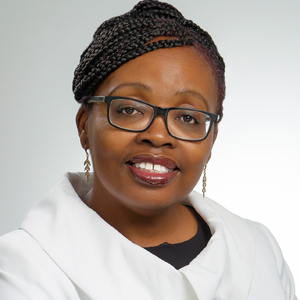
President and CEO of Mennonite Economic Development Associates (MEDA)
Dr. Dorothy Nyambi is the President and CEO of Mennonite Economic Development Associates (MEDA), a non-profit organization with a mission to create business solutions to poverty around the world. Dr. Nyambi holds a Doctor of Medicine Degree from the University of Yaoundé, Cameroon and has done extensive research on capacity building, advancing gender equality in developing countries, and innovation economies around the world. She is a current member of The Association of Women’s Rights in Development and the American Evaluation Association, among others. Beginning her career as a medical doctor, Dr. Nyambi later moved into the field of international development. Prior to joining MEDA, she was Executive Vice President of the African Institute for Mathematical Sciences (AIMS) and worked for organizations like the U.S. Peace Corps, World Health Organization and USAID. Dr. Nyambi is an advocate for blended finance initiatives in the international development sector and a champion of women’s rights around the world. Her experiences in the field have confirmed that entrepreneurship is a powerful way to alleviate poverty and empower sustainable communities.
Adekemi A. Obisesan
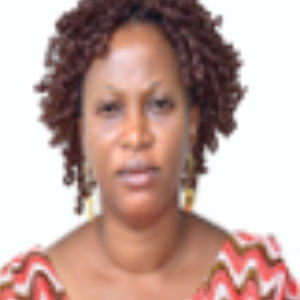
Research Scientist, Department of Agricultural and Resource Economics, Federal University of Technology, Akure, Nigeria
Dr. Adekemi A. Obisesan is a lecturer in the Department of Agricultural and Resource Economics, Federal University of Technology, Akure, Ondo State, Nigeria. She is a member of International Association of Agricultural Economics and Agricultural and Applied Economics Association. She holds a Ph.D in Agricultural Economics from University of Ibadan, Nigeria. Her research interests are in the areas of Welfare economics, Agricultural & Rural development and Gender issues.
Daniel Olago
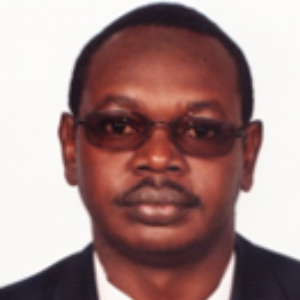
Associate Professor at the Institute for Climate Change and Adaptation, and the Department of Geology, University of Nairobi
Daniel Olago is Associate Professor at the Institute for Climate Change and Adaptation, and the Department of Geology, University of Nairobi. His current research interests focus on the interactions of groundwater, surface water, climate, environment and human linkages with a special focus on eastern Africa. He has been involved in capacity strengthening in local, regional and international contexts for a diverse range of stakeholders, from grassroots, through management to policy-making groups and government agencies. Daniel is Chairman, Network of African Science Academies (NASAC) Water Programme Steering Committee; Member, International Lake Environment Committee (ILEC); Fellow of the African Academy of Sciences; Fellow of the Geological Society of Kenya; Member, Kenya National Academy of Sciences. He is presently running projects that centre around (ground)water security in relation to climate change, sustainable cities, and development corridor programmes, as well as on the palaeoclimatology of the East African region.
Alice Atieno Oluoko-Odingo
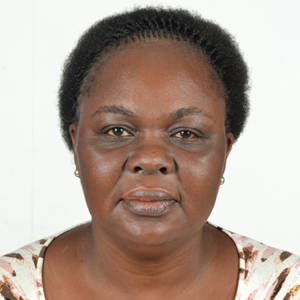
Senior Lecturer in the Department of Geography and Environmental Studies, University of Nairobi
Alice Odingo is a Senior Lecturer in the Department of Geography and Environmental Studies, University of Nairobi, with 15 years of experience in teaching and research on Environmental issues. She holds a PhD in Agricultural Geography from the University of Nairobi and has published in agriculture and food security, poverty and livelihoods, climate change, Energy, Gender and disaster risk reduction, Ecosystem management, Corruption as well as health. Alice is the Chairperson, College of Humanities and Social Sciences (CHSS), Gender Committee and the National Coordinator of the United Nation’s University and Partner Universities Programme on Education for Sustainable Development in Africa (ESDA), Next Generation Researchers Team (NGR). A Team Leader on Research on Peri-Urban Crop and Livestock Farming for Food Security and Livelihood Sustainability, and Gender Analysis of the Mara Conservancies. Alice was the Chairperson, Women and Climate Change Project in Kenya (2009-2012) and an Environment Judge- National Environment Trust Fund (NETFUND). Alice has served as Project Officer, Gender Focal Point- at the IGAD Climate Prediction and Application Centre (ICPAC), Nairobi and a Board member, Association of Women’s Rights in Development (AWID). She is currently, one of the Soroptimist International UN Environment Representatives in Nairobi.
Elizabeth Pollitzer
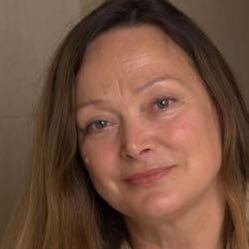 Director, Portia Ltd, UK; founder, Gender Summit
Director, Portia Ltd, UK; founder, Gender Summit
Elizabeth Pollitzer, (PhD (InfSc), BSc (Bio/Phys)) is the founder and director of Portia, which set up the Gender Summit in 2011 and has co-convened each summit since then. She is expert evaluator and adviser for the European Commission, and is involved in several EU projects. Elizabeth Pollitzer PhD is founder and Director of Portia, an organization devoted to improving gender equality in STEM and promoting the inclusion of the gender dimension in STEM. She has 20 years’ experience teaching and researching in the Departments of Computing and Management at Imperial College, University of London. Her original training was in Biophysics. She now applies this scientific background to her work as director of Portia. Portia was the coordinator of the genSET project, the Gender Summits were established as part of the genSET project.
Ylann Schemm
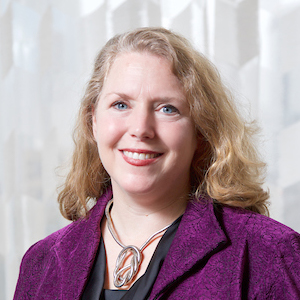
Director of the Elsevier Foundation
Ylann Schemm drives the Elsevier Foundation’s programmatic focus on advancing diversity in science, building research capacity in developing countries, global health and embedding technology for development across the portfolio. For over a decade, Ylann ran the Foundation’s New Scholars program which supports projects to help early- to mid-career women scientists balance family responsibilities with demanding academic careers and addressed the attrition rate of talented women scientists. She currently also serves as Director of External Partnerships within Elsevier's Global Communications group, developing in depth corporate collaborations focusing on technology and the SDGs and co-chairs the communications group for Research4Life, a UN-pan publisher access program working to bridge the digital divide. Ylann is both American and Dutch and holds an MA in Film & Television Studies from the University of Amsterdam and a BA, magna cum laude in English from Amherst College.
Isabella Schmidt
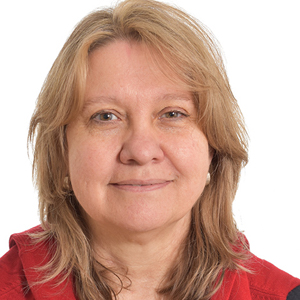
Regional Gender Statistics Advisor for East and Southern Africa for UN Women
Isabella Schmidt is currently the Regional Gender Statistics Advisor for East and Southern Africa for UN Women. Currently her primary responsibilities center around increasing the availability and use of quality gender statistics in the region. She does this by providing technical statistical support and capacity building to UN Women Country offices and their stakeholders and by supporting existing regional institutions working in the area of gender statistics. Prior to joining UN Women, Isabella served as the Chief Director, Social Statistics, at Statistics South Africa for 10 years. Her primary responsibility was to oversee the production and promote the use of Social Statistics in South Africa. This included all statistics produced on gender, marginalized groups, education, governance, public safety and justice, housing & service delivery, tourism, transport.
Leesa Shrader
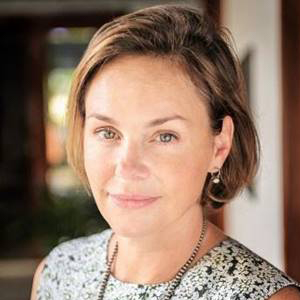
Program Director of the AgriFin Accelerate (AFA) and AgriFin Digital Farmer (ADF) Programs at Mercy Corps
Leesa is the Program Director of the AgriFin Accelerate (AFA) and AgriFin Digital Farmer (ADF) Programs at Mercy Corps. AFA is a 6-year, $24 million program funded by the MasterCard Foundation, while ADF is a 2-year $5 million program funded by the Bill and Melinda Gates Foundation to expand smallholder farmer access to technology-enabled financial and information services across Africa. Ms. Shrader joins AgriFin from CGAP, where she served as the Senior Digital Financial Services Expert for Asia. She has over 20 years global experience working in financial inclusion with leading banks, mobile network operators and institutions such as CGAP, the World Bank, GiZ, KfW and Women’s World Banking. She has significant expertise in digital financial inclusion, as well as agricultural finance, wholesale and retail microbanking, market research and product development, ratings and technical assistance. With support from the Bill and Melinda Gates Foundation, Ms. Shrader worked to build innovative commercial banking technology platforms utilizing branchless and mobile phone channels to serve low income markets in Indonesia and the Philippines. She has worked on mobile and development deployments in 16 countries around the world, including Africa, the Middle East, Latin America and Asia. Ms. Shrader holds a Master’s Degree in Public Policy from Georgetown University and is based in Nairobi with her family, leading programming across Kenya, Tanzania, Ethiopia, Nigeria and Zambia.
Lisa Stadelbauer
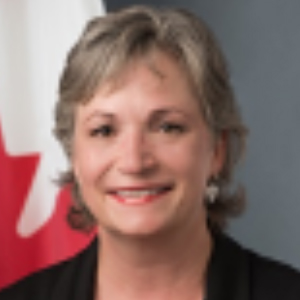
High Commissioner to the Republic of Kenya and Ambassador and Permanent Representative to the United Nations Human Settlements Programme and to the United Nations Environment Programme
Lisa Stadelbauer (BA [Administrative and Commercial Studies], University of Western Ontario, 1988) joined External Affairs and International Trade Canada in 1990. Her first assignment abroad was in 1992 to Tel Aviv, and she later served in Hanoi as counsellor and then in Oslo as counsellor and consul. From 2011 to 2015, she served as Ambassador to Zimbabwe and Angola, and High Commissioner in Botswana. In Ottawa, she has served in a number of functions, including Director of the Eastern and Southern Africa Division, Deputy to Canada’s Africa Personal Representative to the G8 and, from 2015 to 2017, Director General of the Pan-Africa Bureau. Her most recent assignment was in the Foreign and Defence Policy Secretariat of the Privy Council Office. Ms. Stadelbauer was appointed Canada’s High Commissioner to Kenya, Rwanda, Uganda, and Canada’s Representative to UN Environment and UN-Habitat in October 2018, and she presented her credentials as Ambassador to Somalia in June 2019 and to Burundi in July 2019.
Mary Thompson-Hall
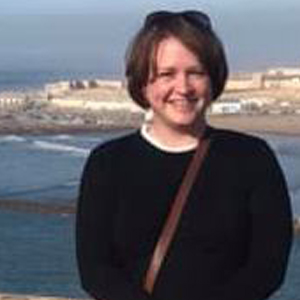
Senior Program Specialist at START
As a Senior Program Specialist at START, Mary Thompson-Hall served as a Co-Principal Investigator and West Africa Team Lead on the Adaptation at Scale in Semi-Arid Regions (ASSAR) project, part of the broader Collaborative Adaptation Research Initiative in Africa and Asia (CARIAA) until 2018. Currently she is working on a diverse portfolio that includes work on renewable energy in North and Sub-Saharan Africa, gender, generating greater impact from research, communications and proposal development. She holds a Bachelor of Arts in environmental studies from the University of Tennessee and a Master of Arts and Ph.D. in geography from the University of South Carolina where her research focused on intersections of conservation and development in Sub-Saharan Africa. Previously, Mary worked with World Bank and African Development Bank experts on participatory adaptation fieldwork for the Zambian Pilot Program for Climate Resilience (PPCR), and also co-authored a USAID commissioned report on gender and climate change adaptation. Prior to beginning her work at START, she worked as a post-doctoral researcher at the Basque Center for Climate Change (BC3) in Bilbao, Spain on topics relating to agricultural biodiversity and climate change adaptation.
Kathryn Toure
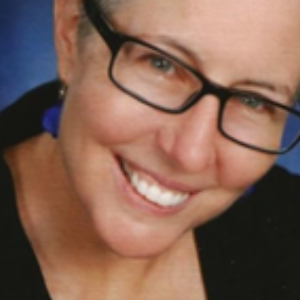
Regional Director, Eastern and Southern Africa, for Canada’s International Development Research Centre (IDRC)
Dr. Kathryn Toure is Regional Director, Eastern and Southern Africa, for Canada’s International Development Research Centre (IDRC), based in Nairobi. She has lead innovations in the education sector and in relation to digital technologies. Her doctoral studies in education through the University of Montreal focused on the Pedagogical Appropriation of Technologies by African Educators. Her commitments to women’s empowerment, diversity and inclusion, and shifting narratives have been integral to her work with youth, elders, educators, researchers, refugees, and policymakers.
Hale Ann Tufan
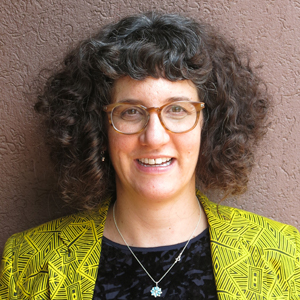
Co-Director of the Gender Responsive Researchers Equipped for Agricultural Transformation (GREAT) project, Associate Director for Gender for International Programs, and International Adjunct Professor of Plant Breeding and Genetics at Cornell University
Hale Ann Tufan is the co-Director of the Gender Responsive Researchers Equipped for Agricultural Transformation (GREAT) project, Associate Director for Gender for International Programs, and International Adjunct Professor of Plant Breeding and Genetics at Cornell University. She has a multidisciplinary background spanning Ph.D.-level research in molecular plant pathogen interactions, plant breeding with CIMMYT, international agricultural research for development program management, and gender capacity and strategy development across SSA. Her work focuses on building gender responsive agricultural research systems, through curriculum development and training delivery for GREAT, and leading research on priority setting, market research, gender research and on-farm testing for the Nextgen Cassava project and gender, quality trait preference profiling, and participatory processing evaluation for the RTBfoods project. She completed her PhD in molecular biology from the John Innes Centre, UK.
Eliane Ubalijoro
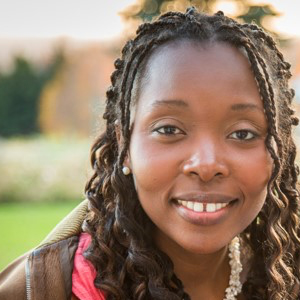
Professor of Practice, McGill University & Deputy Executive Director (Programmes) at Global Open Data for Agriculture and Nutrition (GODAN) Secretariat
Dr. Eliane Ubalijoro is the Deputy Executive Director (Programmes) at Global Open Data for Agriculture and Nutrition (GODAN) Secretariat. She is a Professor of Practice at McGill University’s Institute for the Study of International Development. She is a member of Rwanda’s National Science and Technology Council, Presidential Advisory Council, a board member of the International Leadership Association and member of the board of trustees of WWF International. She is a member of the International Digital Monetary Council. A former scientific director in a biotechnology company, she has co-lead Bill and Melinda Gates Grand Challenges Exploration grants. Eliane has facilitated leadership modules in The Duke of Edinburgh’s Emerging Leaders’ Dialogues program. She has consulted in Haiti and Africa on economic green growth pathways. Eliane gave a TEDx talk on Reimaging the World from Scarcity to Prosperity. Eliane is the chair of the Scientific Program Committee for the Next Einstein Forum 2020.
Heidi van Rooyen
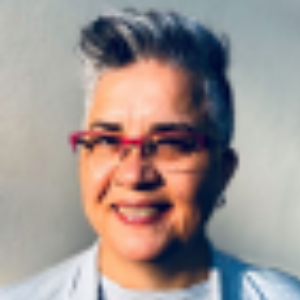
Group Executive of the Impact Centre at the Human Sciences Research Council in South Africa
Professor Heidi van Rooyen is the Group Executive of the Impact Centre at the Human Sciences Research Council in South Africa. Prior to that, she led a multidisciplinary research group interested in the development of individuals over the life course with a focus on how diversity relating to race, gender and sexuality influence our lives. Heidi is a psychologist, social scientist and an accomplished and internationally recognized scholar. For more than two decades her work has addressed HIV risks and vulnerabilities as well as the broader contexts and inequalities that shape this risk. Her current research focuses on the influence of sexual orientation and gender identity as social determinants of health, and issues of race and identity. Heidi is a certified life coach who balances the demands of leadership, publishing and grant writing with a regular contemplative writing practice and poetry.
Florence Muringi Wambugu
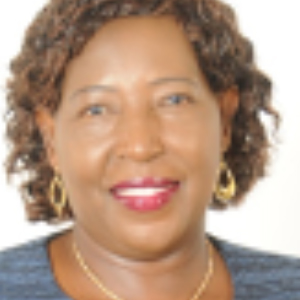
Founder, Director and Chief Executive Officer of Africa Harvest Biotech Foundation International (AHBFI)
Dr. Florence Muringi Wambugu, a renowned agricultural plant pathologist with specialization in virology and genetic engineering is the Founder, Director and Chief Executive Officer of Africa Harvest Biotech Foundation International (AHBFI) from 2002 to the present. AHBFI is a nonprofit foundation with offices in Nairobi, Kenya; Johannesburg, South Africa; Lusaka Zambia and Washington, D.C. Dr. Wambugu, who has over 35 years’ experience in agricultural crop research has a BSc Botany, University of Nairobi; MSc in Plant Pathology, North Dakota State University; PhD in Plant virology, Biotechnology, University of Bath, England; a Post-Doctoral Research Associate – Biotechnology, Plant Science Monsanto, St. Louis, USA and Doctor of Science (DSc), University of Bath, England.
Miyoko O. Watanabe
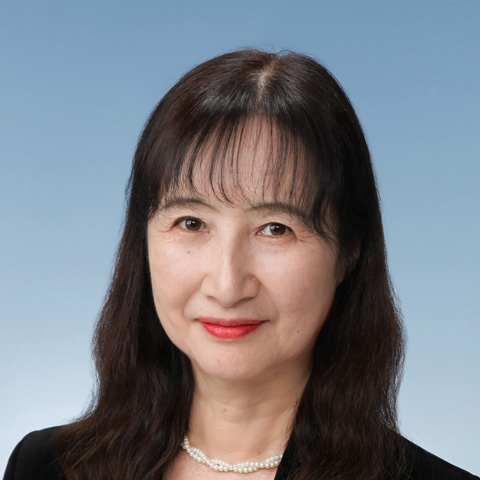
Deputy Executive Directorior, Japan Science and Technology Agency (JST); Director, Office for Diversity and Inclusion, JST, Japan; Chair, Gender Summit 10 Asia-Pacific
Miyoko O. Watanabe is Deputy Executive Director at Japan Science and Technology Agency (JST). She is also the agency’s Director of the Office for Diversity and Inclusion, and Director-General of the Center for Science Commnication. Dr Watanabe is a member of the Science Council of Japan and chair of the council’s Committee on Comprehensive Synthetic Engineering in Science. She is also a member of the Science and Technology Council at Ministry of Education, Culture, Sports, Science and Technology in Japan, as well as a Member of Specialist Committee on Formulating the Fourth Basic Plan for Gender Equality in the Council for Gender Equality of the Japanese Cabinet Office. She worked in various roles for Toshiba since 1979.












































 Director, Portia Ltd, UK; founder, Gender Summit
Director, Portia Ltd, UK; founder, Gender Summit









